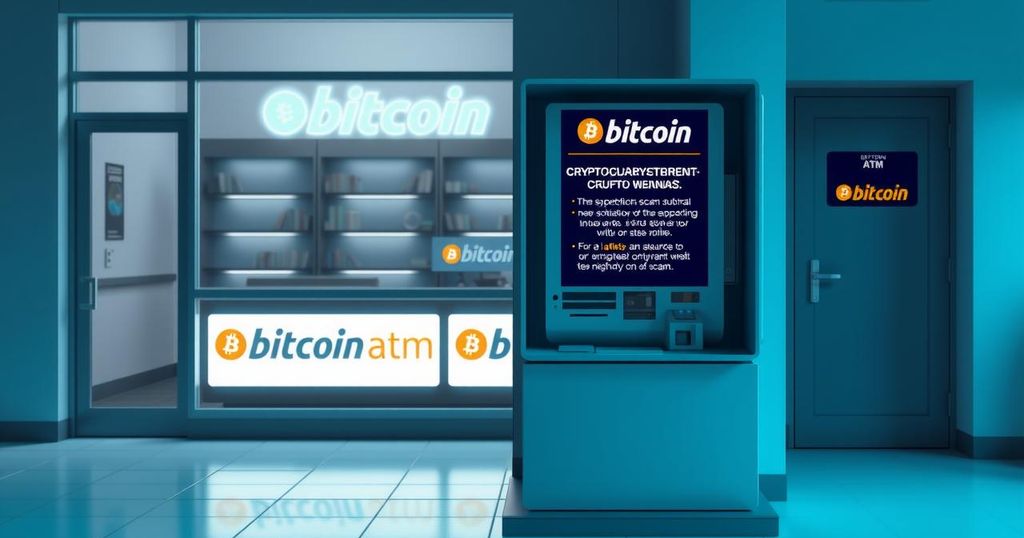Scam alerts!
” SCHWERING, BITCOIN MINING, CENTER SQUARE, CITY OF SPOKANE, CRYPTOCURRENCY, CYBERSECURITY, DREW ANGERER, EUROPE/ASIA, FBI, FRAUD, GETTY, GETTY IMAGES, INTERNAL REVENUE SERVICE, IRS, NORTH AMERICA, PAUL DILLON, RUSSIA, SPOKANE CITY COUNCIL, SPOKANE POLICE DEPARTMENT, TIM SCHWERING, UNITED STATES, WASHINGTON
Marcus Collins
0 Comments
Spokane Implements Ban on Cryptocurrency Kiosks Amid Surge in Scams
Spokane has enacted a ban on cryptocurrency kiosks after losses of over $141 million due to scams linked to these machines. The City Council unanimously passed an ordinance aimed at protecting consumers, citing the rise of fraud affecting particularly vulnerable residents. Kiosk operators must remove their machines within 60 days or face penalties.
In a decisive move, the City of Spokane has enacted a ban on all cryptocurrency kiosks amid alarming reports of scams linked to these machines. The decision follows a staggering $141 million lost to scams involving crypto kiosks in Washington state during 2023. The FBI has documented nearly $5.6 billion in nationwide losses due to similar fraud.
The Spokane City Council took the significant step on Monday, unanimously voting for the “Virtual Currency Kiosk Prohibition for a Safer Spokane.” This legislation positions Spokane as the first city in the U.S. to outright prohibit the operation of cryptocurrency kiosks. Highlighted in the ordinance is the need to protect consumers from the deceptive practices often associated with these machines.
Council Member Paul Dillon expressed his pride in being the first city to pass such legislation, stating that it empowers the city to safeguard vulnerable residents from scam artists using cryptocurrency kiosks. He noted that these kiosks have swiftly become a go-to choice for fraudsters looking to exploit unwitting victims.
Cryptocurrency kiosks operate similarly to traditional ATMs, but instead of dispensing cash, they allow users to buy digital currency. The assets can then be stored in a personal crypto wallet or transferred globally. Once a transfer is executed, returning those funds is virtually impossible unless the recipient voluntarily sends it back.
Detective Tim Schwering from the Spokane Police Department illustrated the severity of the issue, sharing disturbing insights from his investigations. He revealed that many victims find their money redirected to countries like China or North Korea, where recovery is hopeless due to the lack of diplomatic relations with the U.S.
Scammers often employ deceptive tactics—some have even impersonated law enforcement or IRS agents to pressure individuals into purchasing cryptocurrencies as a “safeguard” for their funds. These tactics have disproportionately affected senior citizens, creating a pressing need for protective measures like this ordinance.
Under the new legislation, kiosk operators must within 60 days remove all cryptocurrency ATMs from the city limits. Noncompliance with the ordinance could lead to civil penalties and jeopardise their business licenses. Spokane’s proactive approach may set a precedent for other cities facing similar issues with cryptocurrency kiosks.
Overall, Spokane’s decisive actions reflect a growing concern over the risks posed by cryptocurrency, especially in the face of mounting evidence of fraud.




Post Comment